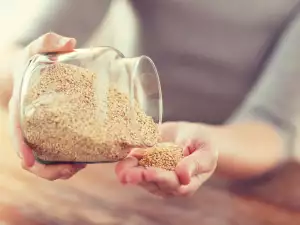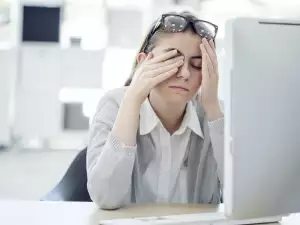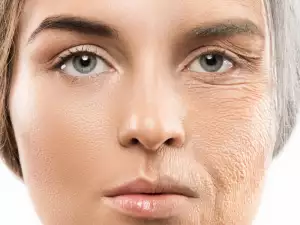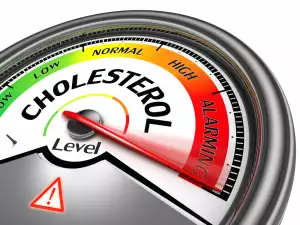The caffeine industry is a big business, resting on the shoulders of its many consumers, who consume it in the form of their coffee or soda. Users of caffeine, however, ignore its destructive influence on the body.
This substance can be found in coffee, chocolate, tea and other products known to relieve pain, such as acetaminophen and aspirin. It is also used with another drug - an antihistamine, which is against drowsiness. For caffeine addicts, immediate withdrawal from regular doses results in headaches lasting from several days to a week or more, depending on the degree of dependence. This is just one of the symptoms associated with caffeine.
The morning cup of coffee is an obligatory ritual for millions of people around the world. Many of us cannot imagine starting our day without the aromatic drink and this is completely normal. But when instead of 1, we drink 4-5 cups of coffee a day, side effects can appear, some of them quite severe.
Caffeine has a direct effect on the central nervous system. It is a known stimulant and can briefly remove drowsiness and fatigue, restores sharpness of thought. In small doses it is healthy, but with addiction, a condition known as caffeinism occurs.
What is caffeineism?
Caffeinism is a dangerous condition and represents caffeine induced anxiety. This is a worsening form of caffeine poisoning and can occur after drinking large amounts of caffeine for 4 or more weeks. The main symptom is an increasing desire to consume larger and larger doses of caffeine, regardless of the source.
Caffeine Overdose Symptoms
Addicts experience physical ailments such as headaches, muscle tension, anxiety, nervousness, dizziness, stuffy nose, heaving, fatigue, tremors, and irritability. These are just some of the side effects of caffeine, that most addicts experience. They are more mental than physical, as mentioned in the book "Nutrition in Exercise and Sport" by Wolinsky, published in 1998.

Caffeine overdose leads to problems such as:
1. Severe abdominal pain
2. Excitement
3. Confusion
4. Dehydration
5. Heavy breathing
6. Muscle tremors
7. Vomiting, sometimes even blood
8. Temperature
9. Tinnitus
10. Irritation
11. Rapid Heart Rate
12. Frequent urination
13. Seizures
14. Insomnia
15. Mastopathy
16. Anxiety
Caffeine causes the creation of unnecessary insulin in the blood, which is a potential health risk. It also has an effect on the menstrual cycle, making it more painful than usual.
There are two main side effects of caffeine.
The first is due to the fact, that it is a diuretic, i.e. liquid products containing caffeine lead to dehydration, which in turn leads to fatigue.
The second negative effect is that it acts as a stimulant.
Stimulants are the ghost reactors causing stress on the body without supplying it with the vitamins and minerals it needs. This is how we use available nutrients and energy to overcome this imagined obstacle.
The stress caused is similar to that caused by some unpleasant life situation and indirectly this affects the heart and the physical health of the body - both externally and internally. The external effect of caffeine is weight loss, pale skin, watery eyes, etc.
Through caffeine, the nutrients provided for the various functions of the body are redistributed quickly, but have a long-term negative effect on human health. In order to avoid this deficiency, the body needs the right nutrient. Only then will it feel good, making it easier to overcome the caffeine effect and only then to overcome the addiction itself.
How to cut off caffeine?
People don't need caffeine to feel fresh and energetic and proof of that are our ancestors who didn't know of caffeine and still managed to get a good night's sleep.
If you drink too much caffeine try to reduce the doses initially. If you stop drinking coffee suddenly, your body will feel stressed and immediately react by constantly taking your mind to that desired cup of coffee. Replace your afternoon coffee with a glass of juice or tea by changing your habit. If you really want to drink coffee, drink a glass of warm water. It will hydrate your body and clear your mind.

Many of us drink coffee in our desire for a quick energy boost. Exercise has a very good effect, so get up and move, especially in the afternoon when sleepiness is at its peak. They are an excellent way to reduce the symptoms of caffeine withdrawal.
If you want to completely limit caffeine, watch out for the so-called hidden sources of caffeine. Read the food packaging and find out about the possible places where the ingredient can be found. Be consistent in your desires and do not give yourself too short a time frame for cutting off caffeine, as its action is very strong and it takes some time for the body to cleanse itself of the need for it.




















Comments